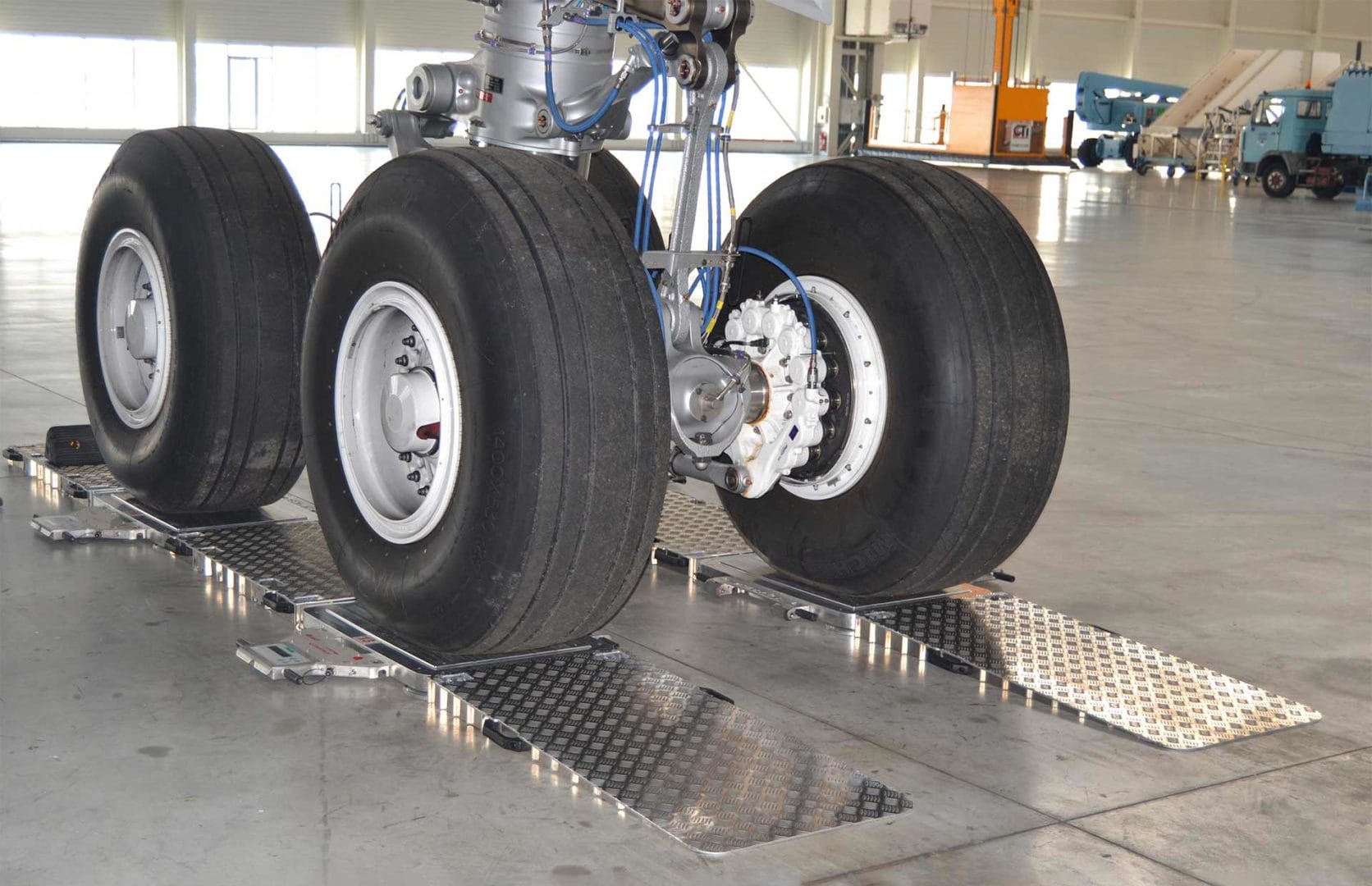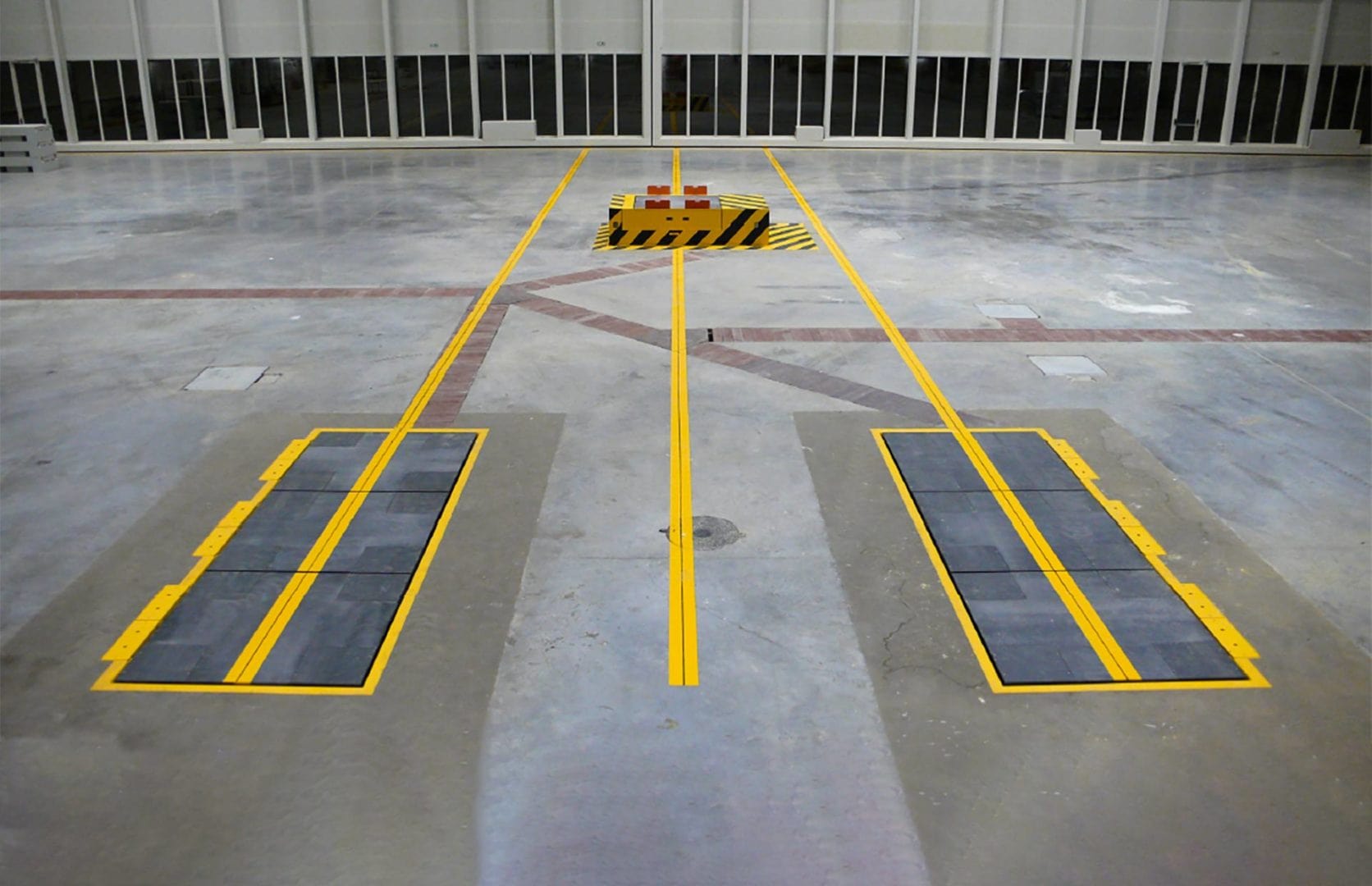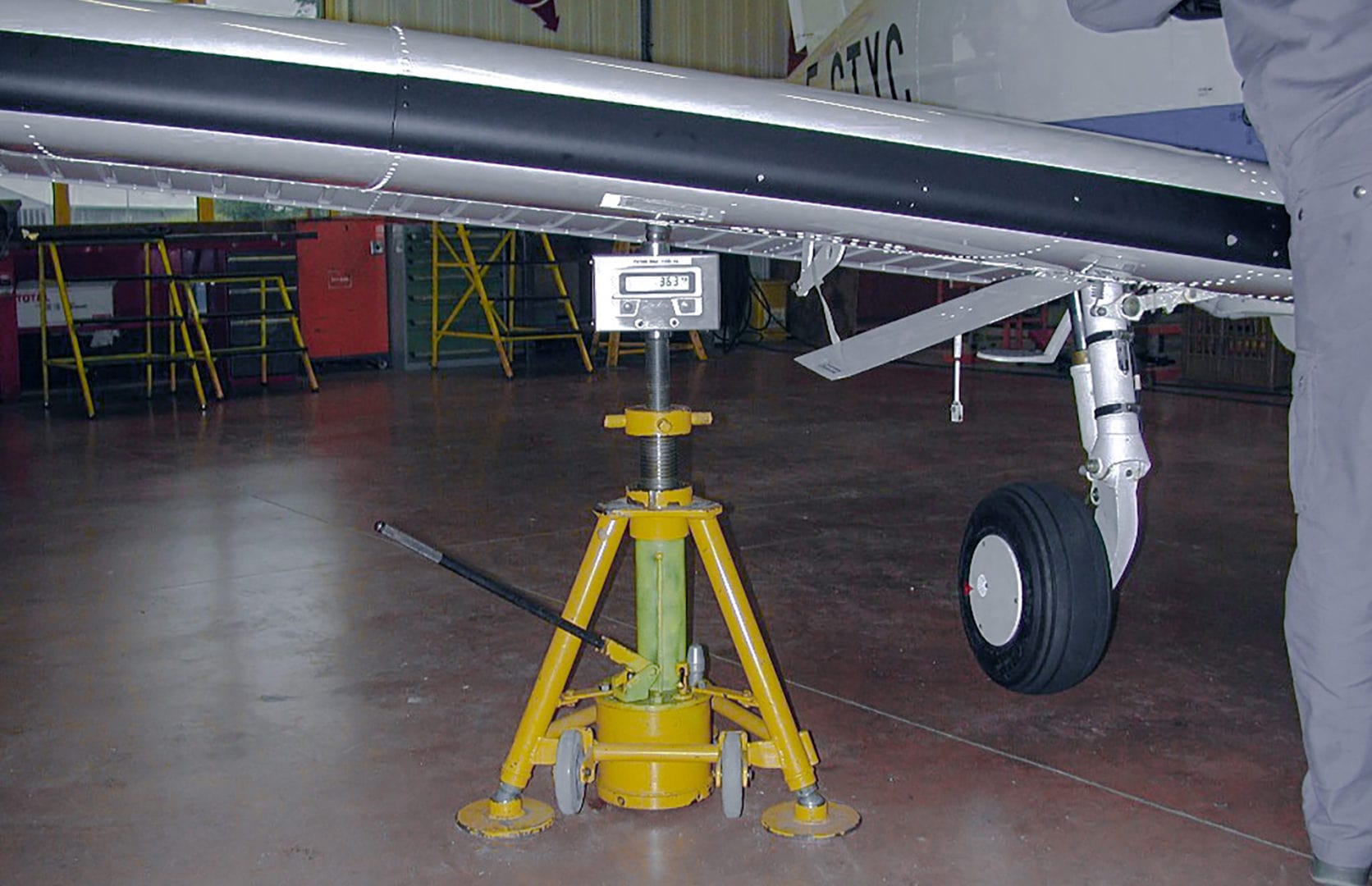The aeronautics industry is subject to rigorous safety requirements. To guarantee flight reliability, every component of an aircraft must be designed and manufactured according to very strict standards. The industry is also under increasing pressure to produce more fuel-efficient aircraft to reduce environmental impact and operating costs. In this context, aeronautical weighing systems are decisive for aircraft manufacturers, airlines and aircraft maintenance repair overhaul - MRO companies.

Air safety is a key issue for aircraft manufacturers, airlines and MRO companies. Aeronautical weighing systems are essential for accurately calculating aircraft weight and centre of gravity. Manufacturers are particularly rigorous about these weighing operations. If the weight and center of gravity of an airliner are not calculated correctly, this can have serious consequences for flight safety. An aircraft that is too heavy may not be able to take off safely. Its weight can have an impact on performance and increase operating costs. In addition, incorrect weight distribution can affect the aircraft's stability in flight and cause structural damage. The data from the initial weighing enables airlines to carry out weight and balance estimates to ensure that the aircraft is within its maximum take-off weight and maximum landing weight. These limits are set by the manufacturer and are based on the aircraft's structural capabilities. During periodic maintenance and servicing, MRO companies monitor changes in the aircraft's weight and capacity. They are subject to the same requirements when their work requires the aircraft to be weighed.
Measuring an aircraft's weight is vital for air transport safety. It is essential to have reliable, accurate and durable aeronautical weighing systems. There several types of aeronautical weighing systems, each adapted to specific aircraft configurations and requirements. Mobile scales, in-ground scales and load cells on jacks are the main aeronautical weighing systems used by aircraft manufacturers, airlines and aircraft maintenance companies.



Mobile scales are high-precision weighing systems that can be moved from one hangar to another. They are fitted with ergonomic handles and castors, enabling operators to move them around easily. The transport trolley or storage rack adds flexibility when setting up. Mobile scales feature strain gauge load cells, an electronic interface with direct readout at the wheel and wireless communication. They are powered by internal rechargeable batteries. The size and capacity of the mobile scales in the Captels range are suitable for all types of aircraft. The low height of the platforms means that short ramps with a shallow incline can be used. For added safety, the aluminium spacers and ramps have a non-slip surface. These accessories clip easily onto mobile scales. The associated weighing software has all the functions needed to accurately calculate the aircraft's weight distribution and its centre of gravity. Aeronautical weighing systems consisting of mobile scales are the most widely used in the aeronautical industry. The accuracy, flexibility and safety of weighing on wheels have won over a large number of manufacturers.
In-ground scales are high-precision weighing systems that are integrated into the floor. They are generally installed in paint shops, maintenance hangars or in an area dedicated to weighing. Their installation requires civil engineering work to integrate the scales into the slab according to the different configurations of aircraft to be weighed. The in-ground scales are fitted with strain gauge load cells and measurement acquisition electronics. The weighing surface and capacity of in-ground scales are designed to weigh medium to very large aircraft. Weighing data is transmitted in real time via a wired link to the remote PC's software interface. The associated weighing software has all the functions needed to accurately calculate the aircraft's weight distribution and its centre of gravity. Aeronautical weighing systems consisting of in-ground scales are used for specific requirements. The accuracy, weighing speed and safety of weighing on wheels remain key advantages of in-ground scales, despite their lack of flexibility.
Sensors on jack cylinders are high-precision weighing systems that measure the weight of the aircraft when it is placed on jacks. The sensors are fitted with adaptors for installation on the cylinder head. This weighing method requires particular care during the manoeuvre to avoid any imbalance, which could cause the aircraft to slide. Sensors on cylinders are equipped with an electronic interface or wired links to a remote indicator. The capacity of each weighing cell is sized according to the type of aircraft to be weighed. Aeronautical weighing systems based on sensors on cylinders are mainly used to weigh light aircraft and helicopters. However, this method of weighing remains marginal compared with the safety and ease of weighing on wheels.
Aeronautical weighing systems are designed to measure the mass and the position of the centre of gravity of an aircraft or helicopter. The precision and accuracy of these measurements are essential to ensure the safety of passengers and crew. Measurement errors can lead to weight and centre of gravity imbalances, affecting the aircraft's stability and manoeuvrability. It is essential to follow the recommended weighing procedures and use high-precision weighing systems to obtain reliable results. Captels mobile and in-ground weighing systems are adjusted and calibrated using calibrated weights, offering measurement traceability guaranteed by the COFRAC mark. These weighing instruments are designed and manufactured in compliance with European regulations on Measuring Instruments, as well as with the recommendations of the International Organisation of Legal Metrology.

Aeronautical weighing systems are essential for ensuring the safety and reliability of flights. Mobile scales, in-ground scales and load cells on cylinders are the main aeronautical weighing systems used by aircraft manufacturers, airlines and aircraft maintenance companies. The accuracy of aeronautical weighing systems is not only important for the safety of passengers and crew, but also for the efficient and economical operation of aircraft and helicopters. Precise measurements enable us to determine the amount of fuel needed for each flight, thereby minimising the environmental impact of air transport.
Website created by Citron Noir